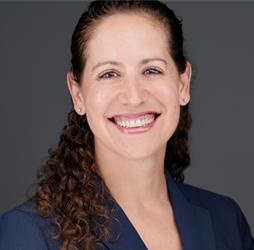As I look to World Water Day approaching in my first year as Global Director for Climate Adaptation, I find myself reflecting not just on the theme of ‘Leveraging Water for Peace’ but also on the importance of passing the baton to the next generation of water stewards. This resonates deeply, as someone invested in sustainable, innovative solutions for our planet's most pressing challenges.
Secure and sustainable access to a clean water supply is the lifeblood of any community. Everyday living, agricultural and industrial processes, business operations, district heating and cooling, and even power supply often depend on this. So how can we raise awareness of the 2.2 billion people for whom ‘Sustainable Development Goal 6: Clean Water and Sanitation for all by 2030’ has not been realized yet?
Water – perhaps our most abundant yet, at times, least accessible resource – plays a vital role cross-borders in fostering unity, resilience, and sustainability in the face of climate change. This year, as I get ready to speak at Duke University on the topic of ‘Ensuring that the Infrastructure We Build Today Creates the World We Want Tomorrow’, I wanted to take a moment to pause and reflect on the legacy we are leaving and the water leadership and understanding of this critical role we should be instilling in generations to come.
Empowering communities and the next generation: Inclusivity as the foundation
True climate resilience begins with empowering communities. Water is more than a resource challenge: it is a social crisis that affects billions worldwide. Marginalized groups including women and girls are often the ones who are affected most1 and is our duty as leading actors but also as major water users2 to contribute to mitigating this inequality. And we know that climate change and conflicts over water resources hit hardest where resilience is already compromised. Of the 20 most vulnerable and least climate resilient countries, 12 were subject to violent conflicts in 20203.
Prioritizing inclusivity, solidarity, and collaboration should be at the heart when looking at long-term solutions. Take, for example, our partnership with UN Habitat for the Shelter program where we are working in communities like Moyale in Kenya to provide technical solutions for water scarcity, while improving access and quality of life for the ever-expanding population. Programs like this provide a route to engage local stakeholders and underrepresented groups, ensuring everyone has a voice at the table in the decision-making processes, creating a space for engagement and ownership. And, as our Global President for Resilience, Heather Polinsky, announced at the UN Water Stage, Arcadis is also committed to achieving diversity and gender balance, with a target of 40% woman and a focus on underrepresented minorities.
These commitments and actions to drive more engagement and representation are a first step in creating more effective, far-reaching solutions beyond addressing immediate water challenges, while also fostering trust and resilience within communities.

Water and climate resilience: Building a sustainable water future
As temperatures rise and extreme weather events become more frequent, water access, supply and stability come into question. It's imperative that we adapt to this changing world for greater resilience. Our involvement in projects like the Lower Manhattan shoreline project highlights the importance of climate resilience in safeguarding low-lying communities. By working alongside city leaders and community members, as well as thinking bold, we're not just protecting vital infrastructure against climate change impacts; we're preserving the vibrant character of communities like Lower Manhattan for future generations.
In the Netherlands, in response to the country’s evolving water challenges, Arcadis and Berenschot conducted an evaluation of the National Drought Crisis Management. The assessment revealed the need for enhanced preparation, collaborative strategies, and streamlined information exchange to bolster resilience. By identifying opportunities for improvement, the study offered a roadmap to mitigate economic losses and strengthen the nation's ability to manage future drought events effectively.
But climate resilience isn't just about infrastructure; it's also about behavior change. Partnerships like the one with the World Business Council for Sustainable Development to successfully launch initiatives like the 50L Home Coalition demonstrate how small adjustments in daily habits can lead to significant water savings. By raising public awareness and promoting water-efficient living, we're not only reducing water consumption but also mitigating conflicts over scarce resources.
Circular pathways for long-term water solutions
Through all of this, we can’t be making the climate threats that we’re trying to respond to worse. By promoting a circular economy – for water this means water reuse, recycling, and conservation – we can reduce conflicts over water resources and promote collaboration. Through innovative technologies and strategies, we can ensure the equitable distribution of water resources and build a more peaceful and resilient future.
A great example is Arcadis’ work in the Santa Monica Sustainable Water Infrastructure Project (SWIP) project. Using the 'One Water' approach, whereby we recognize water as a finite and interconnected resource, integrating the management of various water sources, such as stormwater, groundwater, surface water, and wastewater, we were able address the city’s flooding and water quality issues. By implementing innovative green infrastructure solutions like bioswales and permeable pavements, we reduced flood risks and were able to launch a new, subterranean advanced water treatment facility with capacity to generate nearly 550 million gallons of locally sourced water annually from alternative supplies, improving water quality in the Santa Monica Bay.

Looking Ahead: A call to action
As I prepare to speak at Duke University, I am reminded of the immense responsibility we bear to the next generation. It's not enough to address today's water challenges; we must also lay the groundwork for a more sustainable and equitable future. That means prioritizing community empowerment, climate resilience, data-driven decision-making, and circular economy principles in all our water initiatives.
From the busiest streets of New York to the farthest, most remote corners of the globe, water scarcity and conflict are pervasive issues. As a leader in a company deeply rooted in Dutch water management tradition, I’m committed to helping connect the dots around the intrinsic connection between water, economic development and peace, and sustainability. Advancing multi-hazard climate resilience solutions that address immediate challenges while empowering future generations can pave the way for a more equitable tomorrow.
Projects like ‘Water for Leverage’ in Cartagena, Colombia, where Arcadis is supporting with water infrastructure upgrades, mitigating flood risks and enhancing urban resilience, fostering sustainable development fill me with hope for our collective future. As we celebrate World Water Day, let’s take the discussion beyond this single day to drive real, impactful change. Join me in thinking about a simple question and solution: How can we ensure that the water infrastructure and solutions we build today, create the world we want tomorrow?
Sources
Ref 1 https://www.unwater.org/water-facts/water-and-gender
Ref 2 World Economic Forum
Ref 3 Climate, Peace and Security in Latin America and the Caribbean - Policy Note | Planetary Security Initiative






